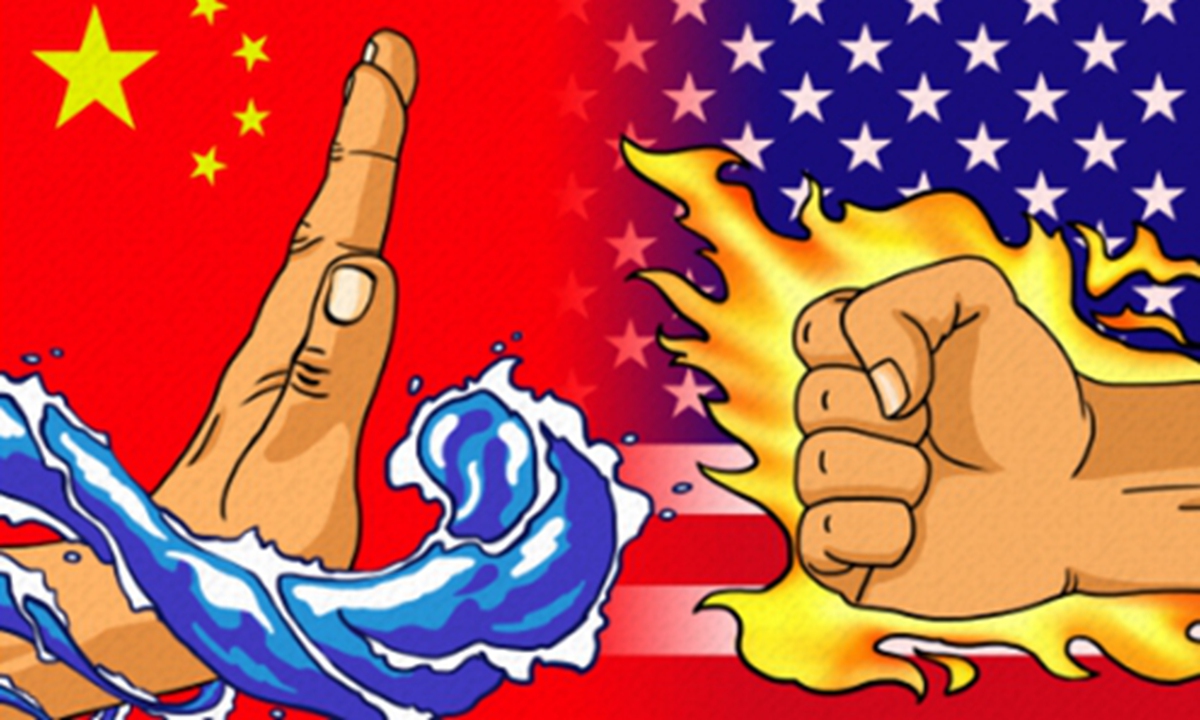By Hu Xijin (15 September 2021) – General John E. Hyten, vice chairman of the US Joint Chiefs of Staff, said on Monday, “Our goal should be to never go to war with China, to never go to war with Russia. Because that day is a horrible day for the planet, and a horrible day for our countries.” Retired US admiral and former head of US Pacific Command Harry Harris also said that “it’s very important that we do everything that we can to prevent an escalation and open warfare” with China.
Recently, there have been more voices in the US emphasizing that the US should not have military conflicts with China. This is obviously because the tensions in the relations between the two countries have been escalating. The frontline troops are getting closer and closer, and the US has had real worries of accidental and serious confrontation between the two militaries and even accidental discharge of fires.
The risk of a China-US military confrontation has increased. The reason is that the two countries’ strategic hostility has continued to increase, and their mutual trust has dropped to almost zero. Metaphorically, if the wind blows the door shut now, both countries would believe that the other side is slamming the door. If an incident like the 2001 in-flight collision in the South China Sea happens again today, it is difficult for the two sides to cool the incident down and resolve it peacefully.
Who is to blame for such an awkward situation?
China has absolutely no way to retreat. The one-China principle is the fundamental principle that we must insist on. When the Democratic Progressive Party authority wants to promote “Taiwan independence,” how can we not stop it? If the US really doesn’t want conflicts with the Chinese mainland in the Taiwan Straits, there are two ways. First, it should put pressure on the DPP authority, not allowing it to make trouble. If both the mainland and the US are against “Taiwan independence,” the DPP authority will chicken out. Second, the US should stop interfering. It should not intervene if the Chinese mainland launches attacks against Taiwan secessionists. In that case, no conflicts will erupt between China and the US in the Taiwan Straits.
But the problem is: The US is instigating the DPP authority to provoke, continuously sending signals that Washington will offer support even if the island touches the bottom line, while at the same time, it asks the mainland to prevent the so-called competition between the mainland and the US falling into conflicts. We have to ask: Is what Washington has done in the Taiwan Straits “competition”? We advise Washington to straighten out its logic. Political hooligan tactics cannot work with the Chinese mainland.
To prevent military conflicts between China and the US and ensure 100 percent security, the US must retreat from provoking China’s core interests. As the “freedom of navigation” in the South China Sea has never been a problem, why do US warships always sail so close to China’s islands and reefs? The South China Sea is so wide that lanes are everywhere. Why must they come to China’s islands and reefs to find trouble? This is not navigation at all, but undisguised provocations and threats.
The Chinese people have already seen it through. There is no way that we can talk to the US with reason, we can only talk to the US with strength and actions. I noticed that when Hyten said the US should never go to war with China and Russia, he particularly mentioned that “a war with a nuclear power is a bad thing.” See? What the US is really afraid of are the nuclear weapons of China and Russia.
So, my conclusion is strong military strength, especially strategic nuclear power, has made the US in deep awe of confronting China. Under the condition that China doesn’t proactively attack it, the US knows that it should stick to the bottom line and not push China into a life and death fight with it. Therefore, as long as what China is doing is defending its core interests, China has the morality and has nothing to fear.
The author is editor-in-chief of the Global Times. [email protected]


